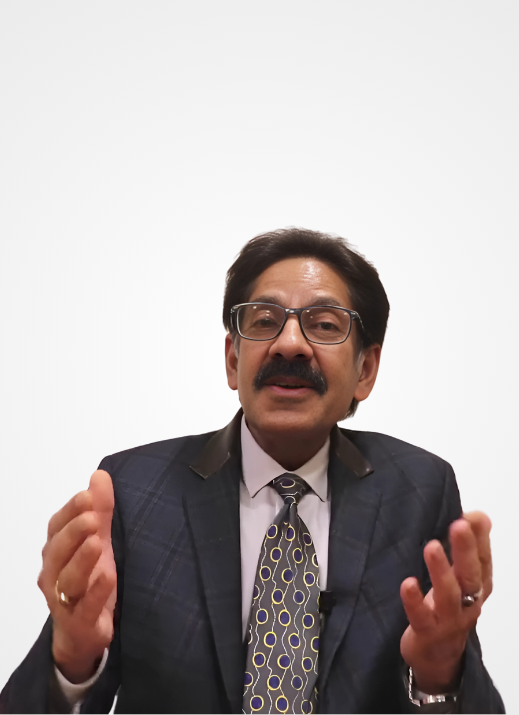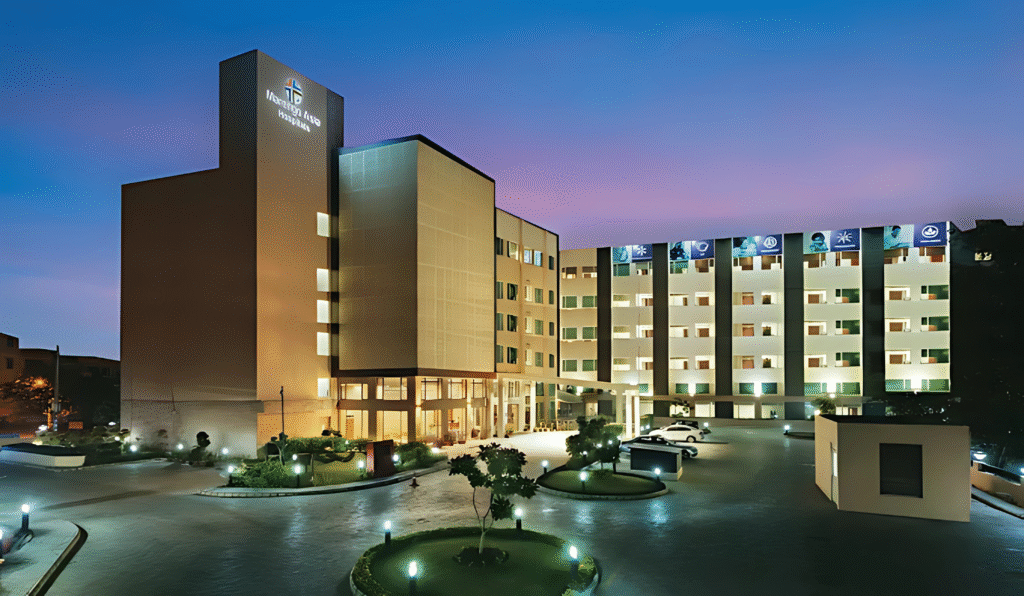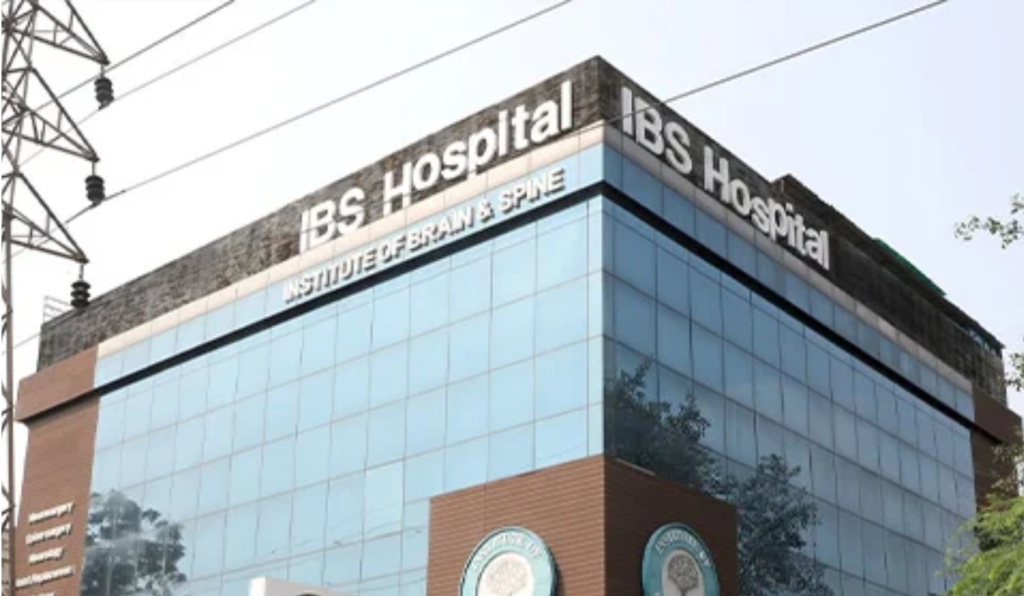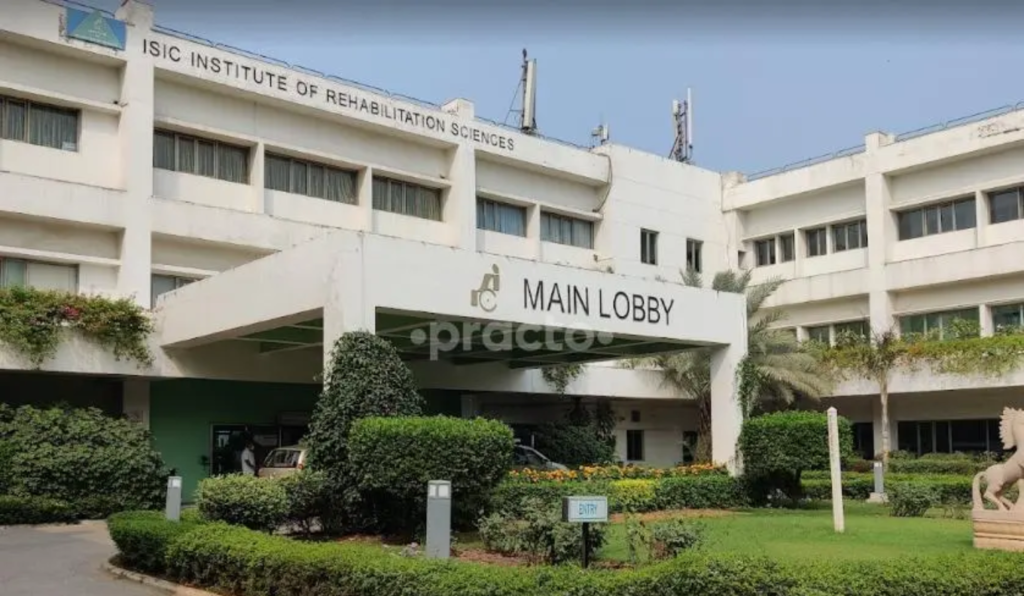Epilepsy Treatment Cost in India

What is Epilepsy?
Epilepsy is a neurological disorder characterized by recurring, unprovoked seizures. Seizures are sudden bursts of electrical activity in the brain that can affect behavior, sensations, and consciousness. It can result from genetic factors, brain injury, infections, or developmental disorders. Epilepsy varies in severity and type of seizures, and it often requires lifelong management through medication or surgical intervention.
How Does Epilepsy Develop?
Epilepsy develops when abnormal electrical discharges in the brain disrupt its normal activity. These discharges can result from various triggers:
Genetic predisposition may cause inherited forms of epilepsy, often starting in childhood.
Acquired epilepsy may follow brain injuries, infections like meningitis, strokes, or tumors.
Unknown causes (idiopathic) exist in many cases, with no identifiable structural problem in the brain.
Over time, frequent seizures can alter neural pathways, making the brain more prone to future episodes. Some individuals experience focal seizures from a single area, while others have generalized seizures affecting the entire brain.
Causes and Risk Factors of Epilepsy
Epilepsy is a neurological disorder characterized by recurrent, unprovoked seizures caused by abnormal electrical activity in the brain. It can develop at any age and varies in severity, duration, and type of seizure. While some cases have a clear cause, many remain idiopathic (unknown origin), making diagnosis and treatment complex.
Primary Causes of Epilepsy
Genetic Factors: Some types of epilepsy run in families, linked to inherited genetic mutations that affect brain function.
Brain Trauma: Head injuries from accidents or sports can damage brain tissue and lead to seizure activity.
Brain Infections: Conditions like meningitis, encephalitis, or neurocysticercosis can trigger inflammation and scarring in the brain.
Stroke or Brain Tumors: Disruption of normal brain function due to oxygen deprivation or structural abnormalities can cause seizures.
Developmental Disorders: Conditions such as autism or neurogenetic syndromes are associated with higher epilepsy risk in children.
Risk Factors Contributing to Epilepsy
Age: Young children and older adults are more vulnerable due to brain development or degeneration.
Family History: A family history of epilepsy increases the risk of inherited forms.
Prolonged Fevers in Childhood: Febrile seizures, especially if prolonged or complex, may lead to epilepsy later in life.
Sleep Deprivation and Stress: Both are known seizure triggers in people with epilepsy.
Substance Abuse: Alcohol withdrawal and use of stimulants or recreational drugs may increase seizure risk.
Symptoms of Epilepsy
Epilepsy is characterized by recurrent seizures, which vary depending on the type and part of the brain affected.
Temporary confusion or staring spells
Uncontrolled jerking movements of arms and legs
Loss of consciousness or awareness
Psychic symptoms like fear, anxiety, or déjà vu
Muscle stiffness or twitching before a seizure (aura)
Types of Epilepsy
This form originates in one part of the brain and can cause symptoms like twitching, altered consciousness, or sensory disturbances depending on the area affected.
Affects both sides of the brain and includes seizures like absence seizures, tonic-clonic (grand mal), and myoclonic. These seizures often involve loss of awareness or convulsions.
Patients experience both types of seizures. This type is more complex and often requires advanced diagnostic imaging for treatment planning.
Includes Reflex Epilepsy (triggered by stimuli), Lennox-Gastaut Syndrome (childhood onset, difficult to treat), and Dravet Syndrome (genetic, early-childhood epilepsy).
Which Type of Epilepsy is the Most Dangerous?
Status epilepticus—a prolonged or repeated seizure without recovery—is the most dangerous form. It can cause brain damage, coma, or death if not treated immediately.
Why Choose India for Neurology and Neurosurgery Treatment?
India has become a global hub for advanced neurology and neurosurgery treatments, offering a unique combination of cutting-edge medical technology, experienced specialists, and compassionate care. Patients worldwide travel to India not only for high-quality treatments but also for the affordability and holistic healing approach that complements neurological recovery.
India is home to board-certified neurologists and neurosurgeons trained at top global institutions. They have extensive experience handling complex conditions such as brain aneurysms, epilepsy, multiple sclerosis, Parkinson’s disease, and more. Their deep expertise ensures accurate diagnosis and effective treatment plans tailored to individual needs.
Indian hospitals are equipped with the latest neurological diagnostic and treatment technologies, including:
Functional MRI and PET scans
Intraoperative neuro-navigation
Robotic-assisted neurosurgery
Deep Brain Stimulation (DBS) systems
These advancements significantly enhance precision in both surgical and non-surgical neurological care.
One of the biggest advantages of choosing India is the affordability. Treatment costs in India can be 50–70% lower than in the US, UK, or other Western nations, without compromising on quality. Pricing is often transparent, and patients receive clear breakdowns before the treatment begins.
Neurological recovery often requires long-term rehabilitation. Indian hospitals offer integrated neuro-rehab services including:
Physiotherapy and occupational therapy
Speech and cognitive rehabilitation
Pain and stress management programs
This ensures patients receive holistic care throughout their recovery journey.
Unlike in many countries where wait times for neurological or neurosurgical consultations and procedures can stretch for weeks or months, Indian hospitals offer quick scheduling and immediate access to treatment, especially critical in time-sensitive cases like strokes or brain tumors.
India is a global leader in medical tourism, offering:
✔ Dedicated international patient coordinators
✔ Medical visa assistance for easy travel
✔ Affordable accommodation & travel support
✔ Multilingual staff, including English-speaking doctors
This ensures a smooth and hassle-free experience for foreign patients traveling to India for treatment.
Different Types of Treatments for Epilepsy
Treating epilepsy often requires a multidisciplinary approach, tailored to the type of seizures and the patient’s individual needs. In India, epilepsy treatment combines globally recognized medical standards with affordability and accessibility. From conventional drug therapy to advanced neuromodulation techniques and dietary approaches, patients can access a wide spectrum of effective options.
How It Works:
Anti-epileptic drugs (AEDs) control electrical activity in the brain to prevent or reduce the frequency of seizures. These medications work by stabilizing nerve impulses and reducing excitability.
When It’s Used:
First-line treatment for most epilepsy types, especially when seizures are newly diagnosed or infrequent.
Benefits:
Often eliminates or significantly reduces seizures
Non-invasive and accessible
Multiple options to suit different epilepsy types
How It Works:
Surgical intervention involves removing or disconnecting the part of the brain where seizures originate (such as a lobectomy or focal resection).
When It’s Used:
Recommended when seizures are localized and resistant to medication (drug-resistant epilepsy).
Benefits:
Potentially curative
Reduces medication dependence
Improved quality of life in drug-resistant cases
How It Works:
A device is implanted under the skin to send electrical signals to the vagus nerve, which helps regulate abnormal brain activity.
When It’s Used:
For patients with drug-resistant epilepsy who are not suitable for brain surgery.
Benefits:
Reduces seizure frequency over time
Adjustable and reversible
Can be combined with medication
How It Works:
A high-fat, low-carbohydrate diet alters brain metabolism and decreases seizure frequency, especially in children.
When It’s Used:
Primarily in pediatric epilepsy cases that do not respond to medication.
Benefits:
Non-pharmacological option
Can significantly reduce seizures
Improves cognitive function in some children
How It Works:
Patients are guided to manage seizure triggers through structured routines, stress management, sleep hygiene, and avoiding stimulants or alcohol.
When It’s Used:
As supportive therapy along with medications or surgery, especially in lifestyle-triggered epilepsy.
Benefits:
Empowers patient self-management
Reduces seizure triggers
Enhances overall well-being
Different Procedures for Epilepsy
Advanced epilepsy procedures in India focus on targeted, minimally invasive interventions that deliver maximum seizure control with minimal complications. These options are increasingly preferred for their precision and shorter recovery times.
1. Brain Surgery
How It Works:
Conventional open surgery to remove seizure-generating brain tissue. Techniques include temporal lobectomy, lesionectomy, and hemispherectomy.
When It’s Used:
In cases where seizures originate from a well-defined area and medication has failed.
Benefits:
Can provide long-term seizure freedom
Addresses root cause directly
Improves cognitive and behavioral function
How It Works:
Electrodes are implanted in specific brain regions to modulate abnormal electrical activity via continuous electrical impulses.
When It’s Used:
In patients with generalized or focal epilepsy not controlled by drugs or resective surgery.
Benefits:
Adjustable and personalized therapy
Non-destructive to brain tissue
Effective in reducing seizure frequency
How It Works:
Utilizes precision robotic systems to assist in navigating delicate brain structures for precise electrode placement or lesion removal.
When It’s Used:
Ideal for complex or deep-seated epileptic foci that require high accuracy.
Benefits:
Enhances surgical precision
Minimizes complications
Enables faster recovery
How It Works:
A laser fiber is guided via stereotactic methods to ablate seizure-causing brain tissue with heat, minimizing damage to surrounding areas.
When It’s Used:
Best for small, well-defined seizure foci (e.g., hypothalamic hamartomas).
Benefits:
Minimally invasive
Shorter hospital stay
Less post-operative pain and scarring
How It Works:
Techniques like stereoelectroencephalography (SEEG) and keyhole resections allow access to deep brain regions with smaller incisions.
When It’s Used:
Preferred in high-risk patients or when preserving brain function is crucial.
Benefits:
Reduced surgical trauma
Lower infection risk
Quicker return to normal activities
Other Advanced Procedures and Costs
This therapy uses Lutetium-177, a radioactive substance, to target Prostate-Specific Membrane Antigen (PSMA), which is highly expressed on prostate cancer cells. The radiation selectively destroys cancer cells while sparing healthy tissues.
Benefits:
✔ Highly effective for advanced and metastatic prostate cancer
✔ Targets cancer cells directly, reducing damage to normal tissues
✔ Suitable for patients resistant to hormone therapy
When It’s Used:
✔ Patients with PSMA-positive prostate cancer
✔ When other treatments (hormone therapy, chemotherapy) fail
Proton therapy is an advanced form of radiation therapy that delivers high-energy protons to the tumor with extreme precision, minimizing damage to surrounding tissues.
Benefits:
✔ Reduces side effects like urinary and bowel issues
✔ Safer for younger patients who need long-term quality of life
✔ Better targeting of tumors, reducing risk of recurrence
When It’s Used:
✔ Localized prostate cancer (early-stage)
✔ Recurrent prostate cancer after previous radiation
CyberKnife is an advanced robotic radiation therapy that delivers highly focused high-dose radiation in fewer sessions compared to conventional radiation therapy.
Benefits:
✔ Shorter treatment time (5 sessions instead of 40+)
✔ High precision, reducing side effects
✔ Non-invasive, no surgery needed
When It’s Used:
✔ Early-stage, localized prostate cancer
✔ Patients who cannot undergo surgery
These treatments target specific genetic mutations in prostate cancer cells, making the treatment more effective for individual patients.
Types:
PARP Inhibitors (Olaparib, Rucaparib): Work on patients with BRCA1/BRCA2 gene mutations.
CAR-T Cell Therapy: A promising experimental treatment that modifies the immune system to attack prostate cancer cells.
Benefits:
✔ Personalized treatment based on genetics
✔ May work when other treatments fail
When It’s Used:
✔ Patients with specific genetic mutations
✔ Advanced prostate cancer with limited treatment options
AI is now being used to improve prostate cancer diagnosis and treatment by analyzing MRI and biopsy data more accurately than traditional methods.
Benefits:
✔ Early and more accurate detection of prostate cancer
✔ Better treatment decisions using AI-guided planning
When It’s Used:
✔ High-risk patients needing early diagnosis
✔ To plan precise radiation or surgery treatments
Best Doctors for Epilepsy Treatment in India
Best Hospitals for Epilepsy Treatment in India
Med Travel India Offerings
How does Med Travel India help you?
Med Travel India is dedicated to assisting international patients in accessing high-quality prostate cancer treatment in India. From selecting the best hospitals to providing logistical support, we ensure a seamless medical journey. Our team works closely with top oncologists and healthcare facilities to offer personalized treatment plans tailored to each patient’s condition.
We take care of every aspect of medical travel, allowing patients to focus solely on their recovery. Below is a list of services provided by our company:
Services offered by Med Travel India

Seamless Planning for Your Medical Journey
Before you even arrive, we take care of all the groundwork. From connecting you with top specialists to ensuring all necessary medical evaluations are completed, we make your journey stress-free. Our goal is to provide clarity and comfort before your treatment begins.
- Free Medical Consultation
- Personalized Treatment Plan
- Estimated Cost & Duration
- Visa Assistanc
- Second Opinion Service
- Pre-Arrival Coordination
Worry-Free Travel & Comfortable Stay
We ensure that your journey to India is as smooth as possible. From booking your flights to arranging a comfortable stay near your hospital, we handle everything so you can focus on your health.
- Flight Booking Assistance
- Accommodation Booking
- Airport Pickup & Drop
- Language Interpretation Services
- Local Transport Arrangements
- Currency Exchange Support


World-Class Medical Care, Personalized for You
We ensure that your medical treatment is well-organized and efficient. Our team works closely with hospitals to facilitate smooth admissions, consultations, and procedures, ensuring you receive top-quality healthcare.
- Priority Appointment Scheduling
- Direct Hospital Admission
- Specialist Doctor Assignment
- Pharmacy & Medical Supplies
- Hospital Admission & Discharge Support
- 24/7 Customer Assistance
Continued Support for a Speedy Recovery
Your health journey doesn’t end after treatment. We provide post-procedure assistance to ensure a smooth recovery, whether you stay in India for rehabilitation or return home.
- Post-Surgical Care Coordination
- Rehabilitation & Physiotherapy
- Virtual Doctor Consultations
- Diet & Lifestyle Guidance
- Extended Stay Arrangements
- Post-treatment Medical Supplies


Beyond Healthcare, A Comfortable Experience
We offer additional services to make your stay in India comfortable and enriching, ensuring that your well-being is cared for beyond the hospital.
- Medical Insurance Settlement Help
- SIm Card Assistance
- Customized Sightseeing Tours
- Medical Document Assistance
- Personalized Assistance for Family Members
- Concierge Services
Reviews From Our Patient













































